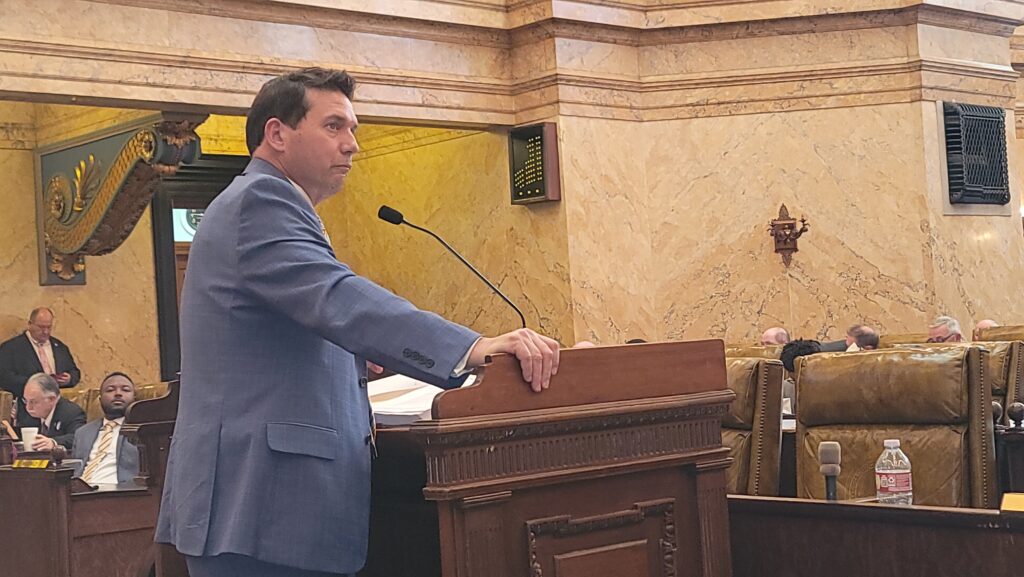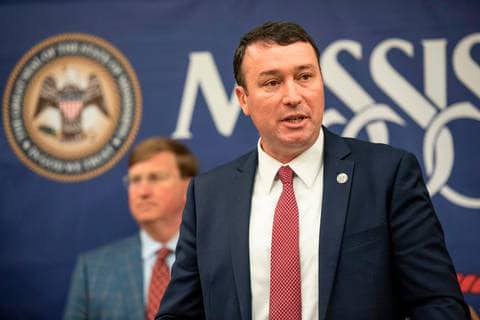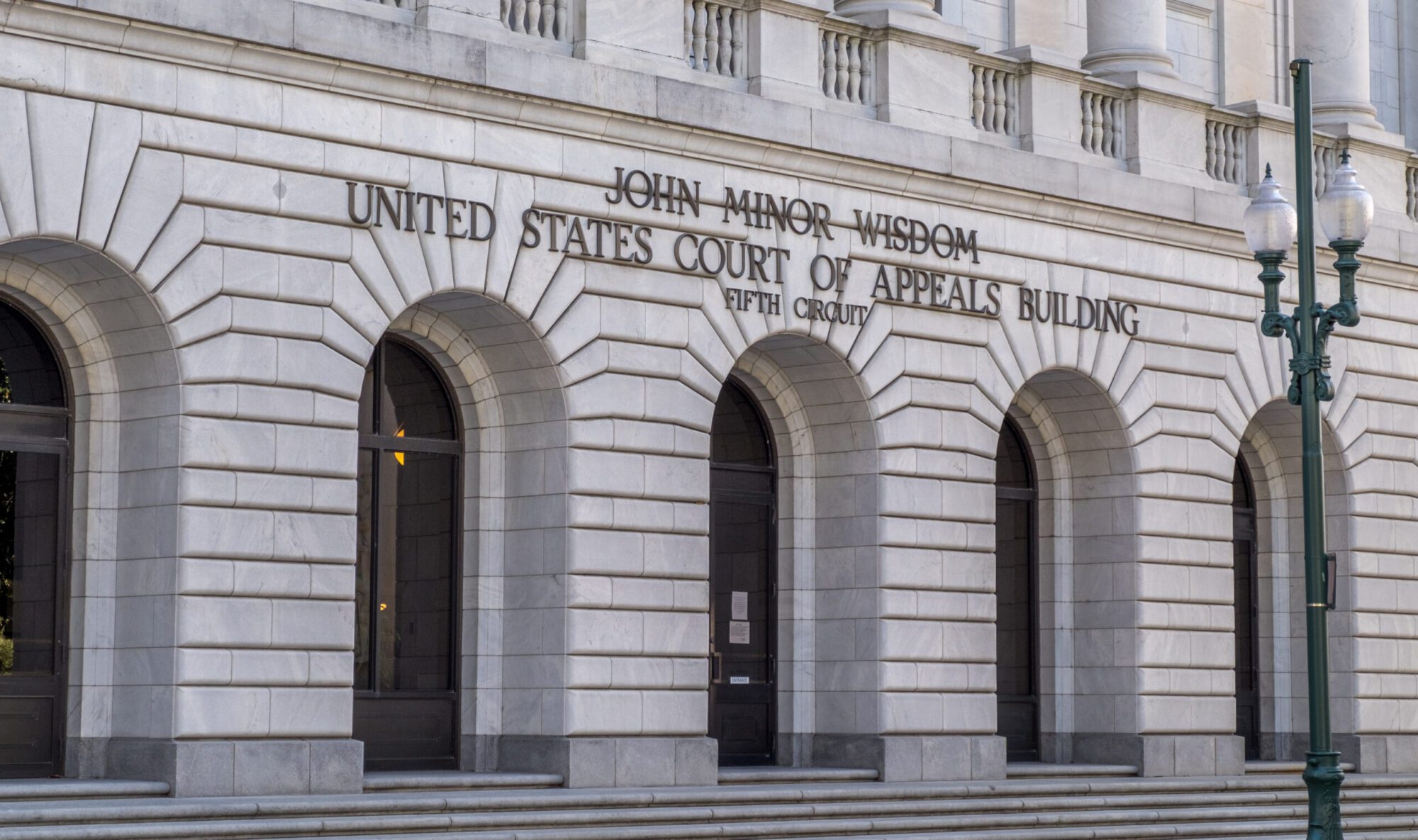
- DPS Commissioner believes the federal government should set standards in relation to hemp and cannabis since current state and federal laws are at odds.
Hemp-based products that contain intoxicating THC levels will remain on the shelves of some Mississippi businesses for at least another year after HB 1502 died this session.
Authored by State Rep. Lee Yancey (R), the bill would have made the sale of any product containing more than 0.3 THC in Mississippi illegal. He has introduced several bills in his legislative career to address the issue, but all have failed.
Yancey noted that it is far more difficult to get legislation through both chambers when a ban is involved.
Currently, hemp-based products can be sold in convenience stores and gas stations, among others, so long as the dry weight of the hemp had no more than 0.3 percent THC. HB 1502 would have also set limits on drinks made from hemp, which can currently be found in a variety of retail locations statewide. Hemp drinks would have been limited to maximum size of 12 ounces and the THC content would have been limited to 5 milligrams per can.
Yancey introduced the bill to close loopholes in the 2018 Farm Bill. While the hemp used to make these products may adhere to the 0.3 percent THC limit set forth in the Farm Bill, when harvested, post-harvest processes that involve heat and environmental conditions can be employed to increase that percentage, resulting in the end product having higher levels of the intoxicating substance, Yancey described.

According to the Public Health Institute, hemp and cannabis are derived from the same plant, but in order to qualify as hemp, the product cannot contain any more than 0.3 percent THC.
Those loopholes have led to a number of products being offered on store shelves that contain levels of THC comparable to products provided through the medical cannabis program. Of the products of concern include those that resemble candy, which Yancey believes are marketed to children.
The loopholes also allow the sale of hemp drinks that exceed 5 milligrams per container.
“So, all of those things can and are being sold now throughout our state and yet they are not limited in the size they can be sold. and they’re not limited in the milligrams of THC that they can have,” Yancey explained. “What our bill would have done is limit the size to 12 ounces and the milligrams to five.”
While 5 milligrams may sound like an intoxicating amount, Yancey clarified that five milligrams in a 12 ounce can equals 0.0014 percent THC, a minuscule amount.
“Everyone expects those beverages to be adult beverages, but they are nowhere near the potency of a beer,” Yancey added.
The bill died by one vote in the Mississippi Senate. A subsequent vote on a motion to reconsider the bill was not enough to revive the measure, allowing it then to die on the calendar.
“Now that the bill is dead by one vote, all of those products up to 0.3 percent THC, gummies and Nerd ropes, and stuff targeted at kids is still being sold and hemp drinks of all sizes and milligrams are being sold, when we could have regulated down to a Shirley Temple drink and gotten rid of all those products,” Yancey said.
Regulation and enforcement
Hemp, and subsequently cannabis products, are in a gray legal area.
Commissioner of the Mississippi Department of Public Safety Sean Tindell believes the federal government should set standards in relation to hemp and cannabis since current state and federal laws are at odds.
Even though several states such as Mississippi have legalized cannabis for medical purposes, and some states allow it to be used recreationally, cannabis remains illegal as a Schedule 1 substance under federal law. Since the federal government sets the standards by which regulated products are labeled, such as tobacco and alcohol, a federal standard needs to be set for hemp products as well, Tindell said.
“I think until there are labeling requirements on the federal level and testing on the federal level, we’re going to continue to run into these types of problems,” Tindell stated.
Even if a bill were to pass in the Mississippi Legislature, Tindell said the enforcement challenge will be determining who will be responsible if a mass-produced product is found to have too much THC. Truth in labeling that will help in enforcement.

For now, Tindell said prescriptions for medications to obtain the substances should come from trusted sources, such as licensed doctors and pharmacists.
Commissioner Tindell also warns that fentanyl has been found in far too many products, leading to overdose deaths. While there have been no reports of fentanyl being found in intoxicating hemp products, Tindell said there have been reports of seemingly everyday products like Xanax being laced with the powerful opioid. Laced products typically come from an unregulated lab that produces counterfeit products made to resemble the real thing.
“It could have a lethal amount of fentanyl in it that could cause them to overdose and die,” Tindell warned. “You need to be mindful of what you are putting in your body and not just take the word of what’s on the label or the person that’s giving it to you.”










